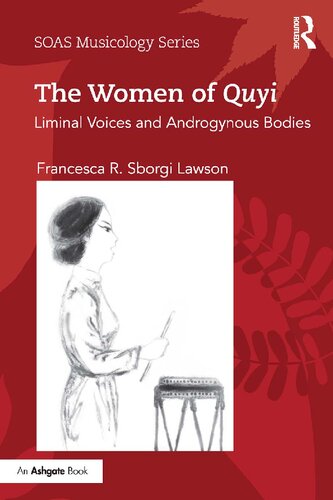

Most ebook files are in PDF format, so you can easily read them using various software such as Foxit Reader or directly on the Google Chrome browser.
Some ebook files are released by publishers in other formats such as .awz, .mobi, .epub, .fb2, etc. You may need to install specific software to read these formats on mobile/PC, such as Calibre.
Please read the tutorial at this link: https://ebookbell.com/faq
We offer FREE conversion to the popular formats you request; however, this may take some time. Therefore, right after payment, please email us, and we will try to provide the service as quickly as possible.
For some exceptional file formats or broken links (if any), please refrain from opening any disputes. Instead, email us first, and we will try to assist within a maximum of 6 hours.
EbookBell Team

4.4
52 reviewsWhy has the female voice―as the resonant incarnation of the female body―inspired both fascination and ambivalence? Why were women restricted from performing on the Chinese public stage? How have female roles and voices been appropriated by men throughout much of the history of Chinese theatre? Why were the women of quyi―a community of Chinese female singers in Republican Tianjin―able to become successful, respected artists when other female singers and actors in competing performance traditions struggled for acceptance? Drawing substantially on original ethnographic fieldwork conducted in the 1980s and 1990s, Francesca R. Sborgi Lawson offers answers to these questions and demonstrates how the women of quyi successfully negotiated their sexuality and vocality in performance. Owing to their role as third-person narrators, the women of quyi bridged the gender gap, creating an androgynous persona that de-emphasized their feminine appearance and, at the same time, allowed them to showcase their female voices on public stages―places that had been previously unwelcoming to female artists. This is a story about female storytellers who sang their way to respectability and social change in the early decades of the twentieth century by minimizing their bodies in order to allow their voices to be heard.